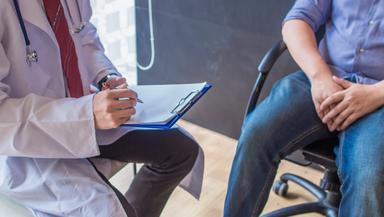Cancer Management In Times Of COVID-19

The rapidly expanding Coronavirus pandemic brought the world to its knees and has assaulted all aspects of daily life. Medical professionals are working day in and day out to treat the patients affected by the disease. Researchers are trying their best to get to the core of it and find a cure. Though we haven’t had any luck in the treatment or cure spectrum, our hopes are still high. It shouldn’t be too long before we hit the bull’s eye. Until then, it is very important that everybody takes care of themselves and practices precautionary measures proposed by the authorities, especially people with underlying health conditions like Cancer.
It has been proven that people with low immunity have severe complications as compared to ones with high immunity. The only matter of concern is that if a Cancer patient is infected by the virus, they are at risk of having extreme complications and the mortality rate is high.
Cancer itself, and many times its treatments like Chemotherapy tend to weaken the immune system of the patient. Apart from that, factors like old age and other underlying diseases like Obesity, Hypertension, Diabetes, etc. increase the mortality rate in these patients if infected.
Cancer patients have been categorized into two groups according to international standards - Vulnerable and Non-Vulnerable groups.
Patients with active Cancer treatments like Radiation Therapy, Chemotherapy, various surgeries or Transplants; or patients who have had any of these treatments in the last six months fall under the vulnerable group. Patients of this group are at a higher risk of severe complications and even mortality if they are infected by the Coronavirus. General social distancing protocol is not sufficient to keep these patients protected. They need ‘shielding’. It means they must maintain a distance of 3 feet from all of their family members. They should not use common spaces like the kitchen, hall, dining room, etc. These patients should have a separate bathroom, bed, towel, etc. for a minimum of six weeks to reduce even the slightest chances of infection.
The non-vulnerable group consists of the patients who have completed the treatment or who are just on follow-ups. Practising social distancing is good enough for them.
It is important to keep your doctors informed about any distress or any symptoms related to COVID-19. You don’t need to visit the hospital unless it is extremely necessary and your doctor has said so. Try and consult your doctor over video calls or regular calls to avoid visiting the hospital.
Also, if you are a recently diagnosed Cancer patient who hasn’t started any treatment yet. Talk to your doctor and see if there are chances of postponing the treatment.
Dr Revanth
Consultant - Oncologist, Gleneagles Global Hospital, Lakdikapul
Disclaimer: The views and opinions expressed in this article belong solely to the author. They do not reflect the opinions or views of the organization.











